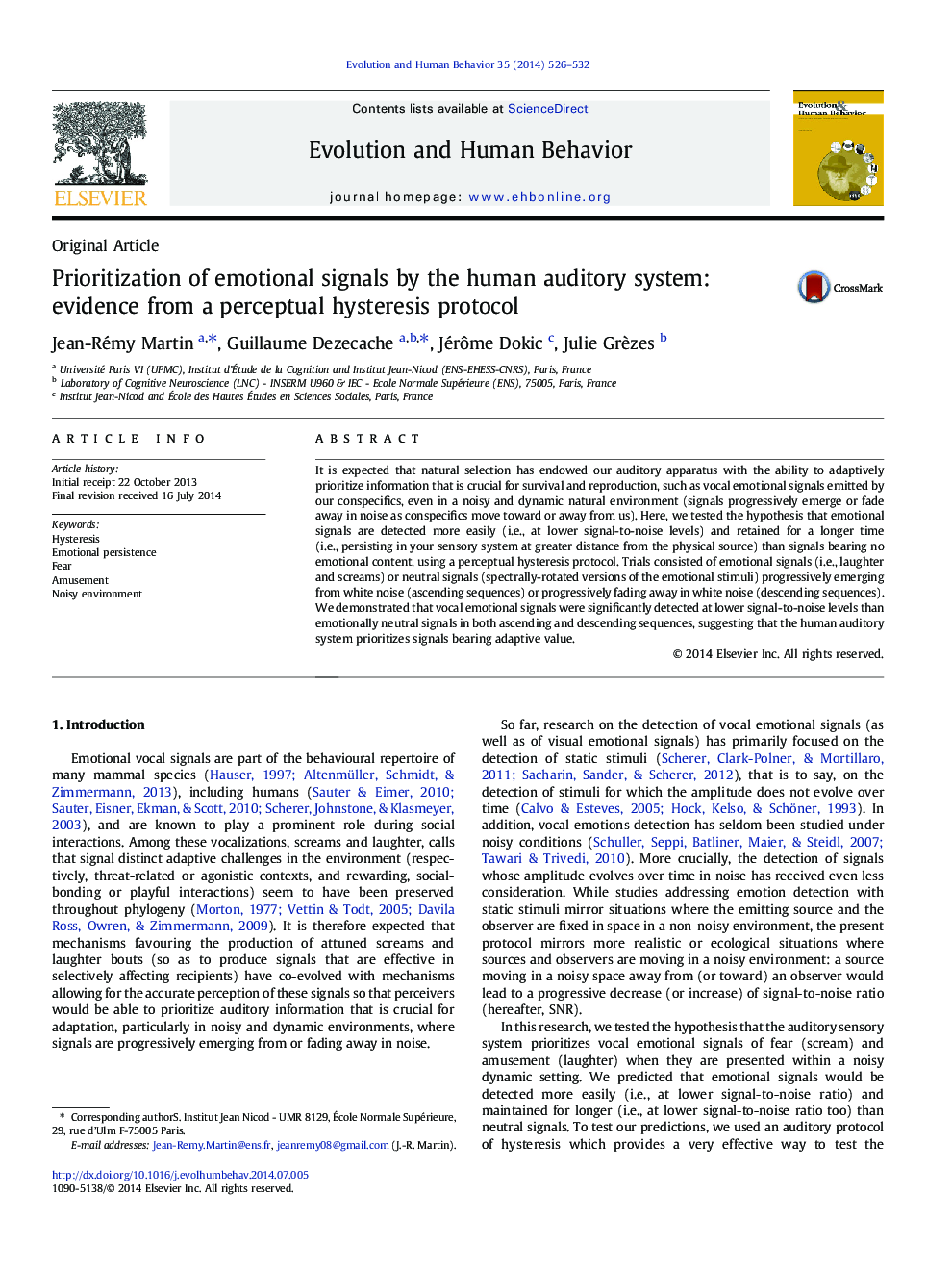| Article ID | Journal | Published Year | Pages | File Type |
|---|---|---|---|---|
| 10464039 | Evolution and Human Behavior | 2014 | 7 Pages |
Abstract
It is expected that natural selection has endowed our auditory apparatus with the ability to adaptively prioritize information that is crucial for survival and reproduction, such as vocal emotional signals emitted by our conspecifics, even in a noisy and dynamic natural environment (signals progressively emerge or fade away in noise as conspecifics move toward or away from us). Here, we tested the hypothesis that emotional signals are detected more easily (i.e., at lower signal-to-noise levels) and retained for a longer time (i.e., persisting in your sensory system at greater distance from the physical source) than signals bearing no emotional content, using a perceptual hysteresis protocol. Trials consisted of emotional signals (i.e., laughter and screams) or neutral signals (spectrally-rotated versions of the emotional stimuli) progressively emerging from white noise (ascending sequences) or progressively fading away in white noise (descending sequences). We demonstrated that vocal emotional signals were significantly detected at lower signal-to-noise levels than emotionally neutral signals in both ascending and descending sequences, suggesting that the human auditory system prioritizes signals bearing adaptive value.
Related Topics
Life Sciences
Agricultural and Biological Sciences
Ecology, Evolution, Behavior and Systematics
Authors
Jean-Rémy Martin, Guillaume Dezecache, Jérôme Dokic, Julie Grèzes,
